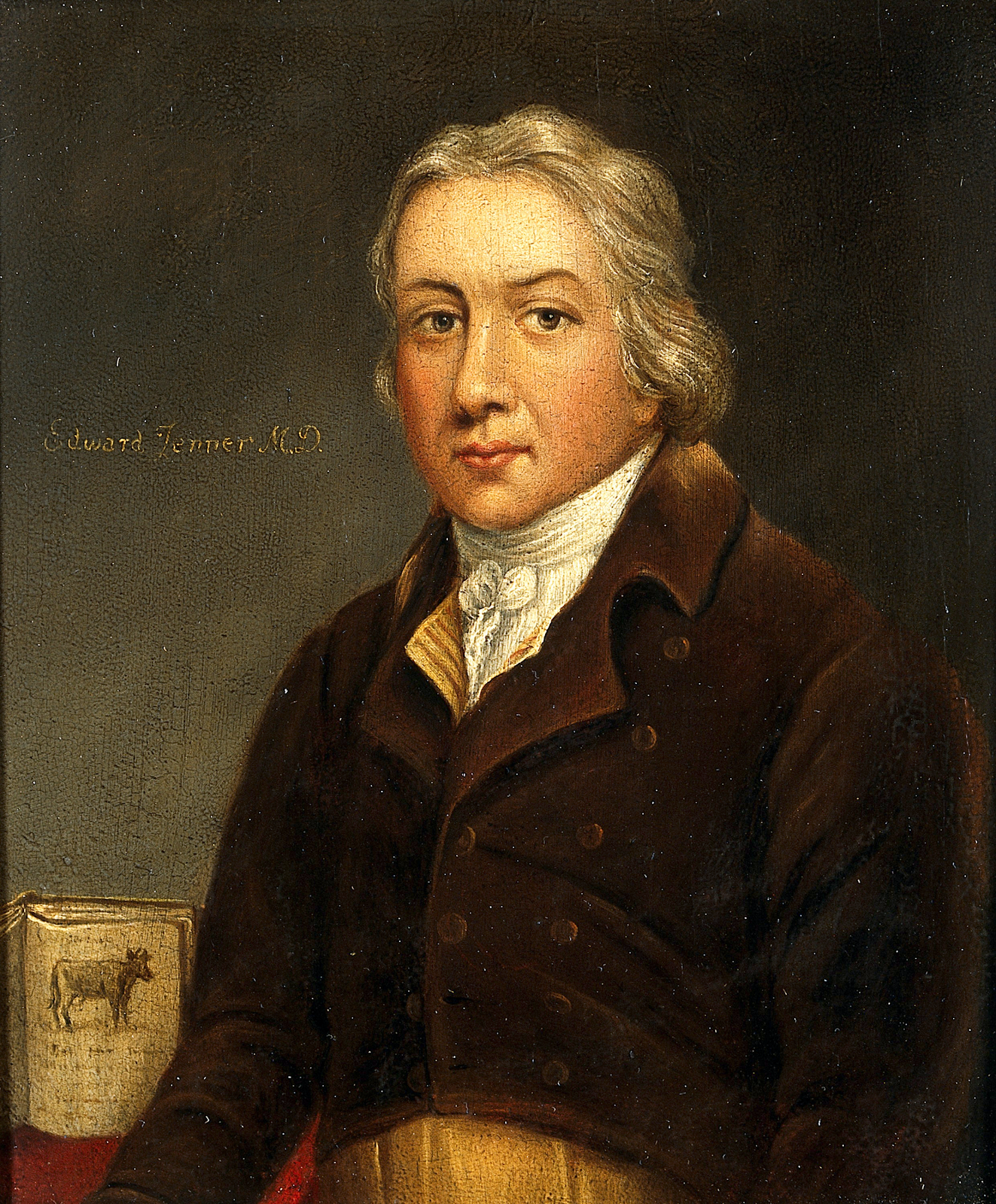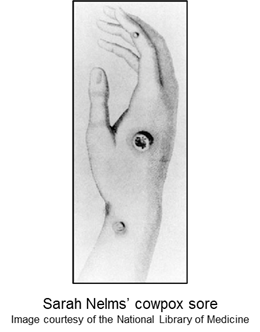By Jenna Beam
Meet Edward Jenner, a physician from way back in the early 1800’s. Why do we care about another old English man, you ask? Because Edward Jenner is the man responsible for one of the most important medical discoveries ever made: vaccines.
As a baby through early childhood, and even sometimes as an adult, you receive vaccines to protect you against certain diseases. These include things like chickenpox, measles, and whooping cough (pertussis), among many others. And while vaccines are sometimes hotly debated, they have without a doubt improved our life spans and quality of life. For example, the graph below shows the number of cases of whooping cough in the United States from 1922 to 2018. Prior to the introduction of the vaccine around 1950, hundreds of thousands of people, mostly babies, were infected and ultimately died from this infection. However, once the vaccine was introduced, you can see the steep drop off in cases. You can watch this video to see what whooping cough looks like in a baby, but WARNING, it’s pretty sad and scary. (P.S. What about that spike in cases just after 2010? We have the anti-vax movement to thank for that!)
Smallpox is another example of a disease that people (used to) get vaccinated against. It’s caused by the variola virus and causes really gross, pus-filled rashes that are extremely contagious. Smallpox existed LONG before Jenner came to humanity’s rescue. In fact, the earliest evidence of smallpox can be found on Egpytian mummies dating back to 1570 BC! Even before Jenner’s time, it was well-known that once someone got smallpox, they couldn’t get it again. People took this knowledge and RAN with it. I mean, guys, in a practice called variolation, they would scrape the pus from one person’s rash and use a lancet (kind of like a scalpel) to pierce the skin and deliver the infection to someone else. Come again?
Now, in their defense, this is a good idea in theory, but came with a lot of side effects, as you might imagine. Sometimes, the person getting the pus would develop a full blown case of smallpox, instead of a low-level infection that gave them immunity. Also, there are tons of bloodborne diseases (think STDs that were extremely common in this time period) that could also get transmitted this way. Good idea, bad execution – happens to the best of us.
This brings us to 1796 and the most important observation Jenner ever made: dairymaids who got cowpox never got smallpox. The story goes like this: It’s May of 1796. Here is where we meet Sarah Nelms, a dairymaid, and James Phipps, an 8 year old boy. Jenner takes a swab of a cowpox rash on Sarah’s hand and infects James with it. About a week later, James gets a fever and feels sick, but the next day is 100% recovered. Then in July, Jenner infects James with smallpox. Let’s pause and appreciate the riskiness of Jenner potentially giving an 8 year old a deadly disease in the name of scientific observation. Pause.
Alright, continuing. You might’ve figured it out already, but James never gets sick from smallpox. Having been infected with cowpox had completely protected James from smallpox! See the virus that causes cowpox is really similar to the virus that causes smallpox. When James got infected with cowpox, his body mounted an immune response where it produced antibodies that helped get rid of the virus. Once these antibodies are made, they can also recognize and get rid of smallpox. This is called immunity, or protection, to the virus. Pretty cool, right?
And thus, the practice of vaccination took over England and the world. A risky story with a happy ending.
This story comes to us from Jenner’s friend and biographer, John Baron. What a friend, right? Writing a whole book about how his buddy saved the world. Some people think that the milkmaid story is a myth and that Jenner actually got the idea from reading about the observations of (another old) English doctor, John Fewster, when he was 13 years old. While we may never know for certain where the “cowpox prevents smallpox” observation came from, what we do know is that the observation led Jenner to develop the first vaccine. And that’s something we can all be grateful for.
Over the next couple centuries, huge efforts were made to control and eradicate smallpox and in 1979, the World Health Organization officially announced that smallpox had been eradicated! All thanks to a weird practice, a curious doctor, a milkmaid, and a boy.
Edited by Elise Hickman and Carolina Herrera



